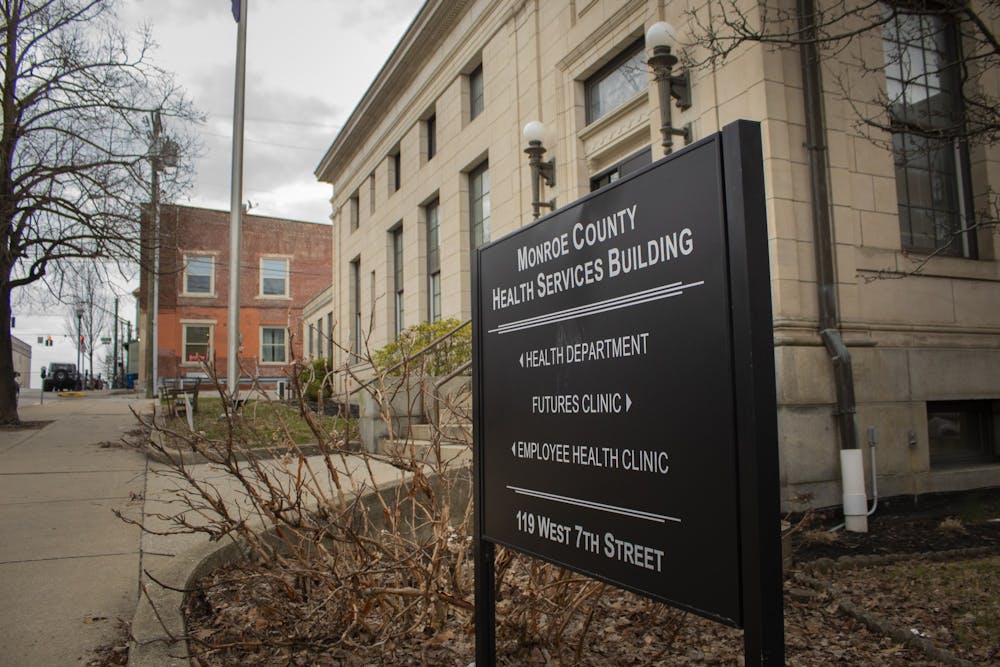Indiana has 12 confirmed cases of the coronavirus spread across eight counties as of Thursday afternoon. Here’s advice from the Monroe County Health Department on how to mitigate the virus’ effects and how to get tested.
Coronavirus basics
The new coronavirus has fast transmission rates and the ability to blend in with other respiratory problems such as the flu or common cold. Monroe County Health Department’s lead health educator Kathy Hewett said common symptoms are fevers 100.4 degrees or above and shortness of breath. Less common symptoms are congestion and a sore throat.
The most common transmission method is via droplets from an infected person, typically through sneezing and coughing, Hewett said. The virus can also be transmitted through commonly touched objects and surfaces. It has an incubation period of two weeks, and people typically show symptoms within five days.
Who is most at risk?
The elderly and people with compromised immune systems are most at risk for contracting the coronavirus, Hewett said. According to the Centers for Disease Control and Prevention, older adults and people who have serious chronic medical conditions such as heart disease, diabetes and lung disease are at a higher risk of getting very sick from the coronavirus.
I might be sick, what do I do?
Hewett said the first step is calling your primary health provider. From there, the physician can determine if you need to be tested for the flu, coronavirus and other respiratory illnesses. Calling ahead also gives physicians a chance to prepare by doing things such as setting up a room isolated from others.
Testing for the coronavirus will only happen after tests for the flu and other respiratory infections come back negative. Medical staff will take a swab to the nose and throat, as well as draw blood to test for COVID-19, Hewett said.
The state qualifications for testing include having a temperature above 100.4 degrees and difficulty breathing. If the patient meets this criteria, they will be tested, and a sample will be sent to the Indiana State Department of Health laboratories to be processed.
Hewett said if the patient doesn't meet the qualifications, the sample can be sent to a commercial testing facility such as Quest and LabCorp. Tests typically take about a day to be processed.
The cost of treating the coronavirus is unclear. Tests are covered by Medicare, and fees are being waived by some private insurance plans, according to CNN. However, that doesn’t take into account costs from emergency room or doctors’ visits, medication to alleviate symptoms or tests to eliminate other possible illnesses.
Should I quarantine?
People should quarantine for 14 days if they have a fever at or above 100.4 degrees and have trouble breathing or been around someone with a confirmed COVID-19 diagnosis, Hewett said. According to the CDC, people should also quarantine at home if they have been to a country with a level 3 travel alert.
While in quarantine, the CDC recommends taking your temperature twice a day to monitor for fever. People should also look for cough or having trouble breathing. Do not go to work or school and talk to your employer before returning to work. People should stay home and keep a distance of 6 feet from other people. People should limit activities in public and not take public transportation, cabs or ride-shares.
What can I do to decrease the chance I get it?
Hewett recommends sanitizing commonly touched surfaces. In homes, that includes doorknobs, light switches, TV remotes and phones. Also, she said to make sure people are washing their hands for at least 20 seconds. If a person has to use hand sanitizer, it should contain a minimum of 60% alcohol.
Social distancing, staying six feet away from other people and avoiding large gatherings is also a way to decrease the chance of getting infected, Hewett said.
Wait, isn’t this the same thing as the flu?
For the flu, medications and vaccines for common strains of the virus are available, Hewett said. For COVID-19, medications and vaccines are not available. Like the flu, doctors can only focus on reducing the severity of the patients’ symptoms.




